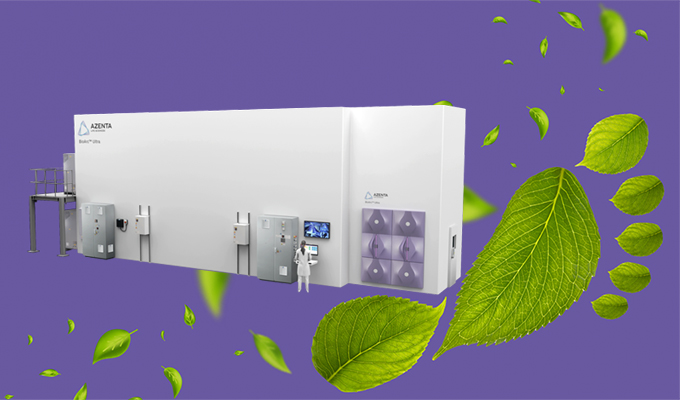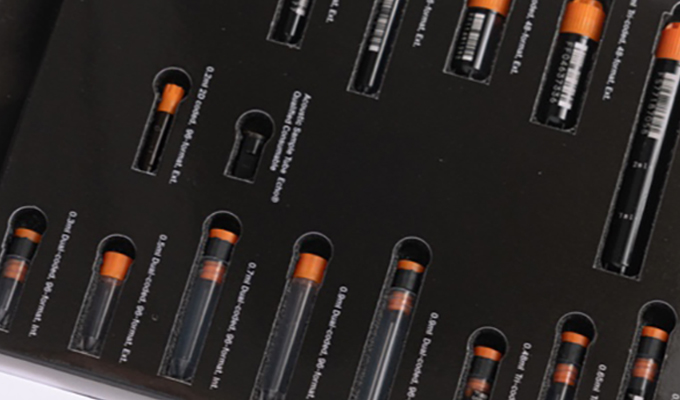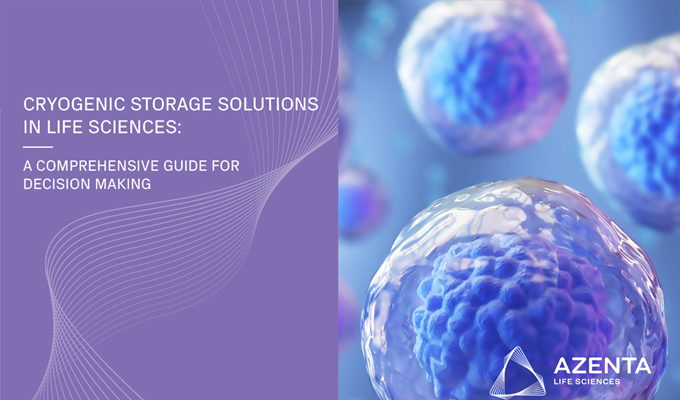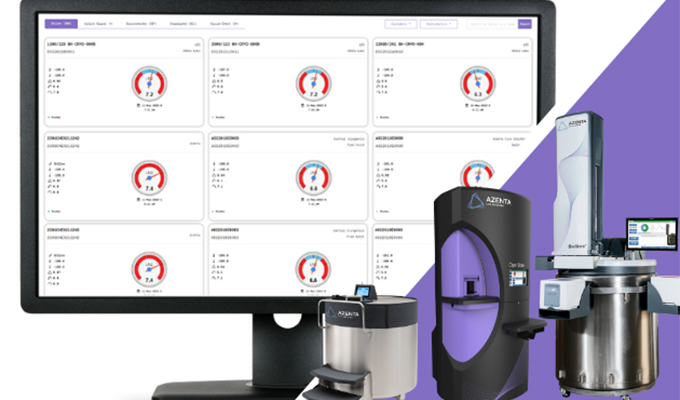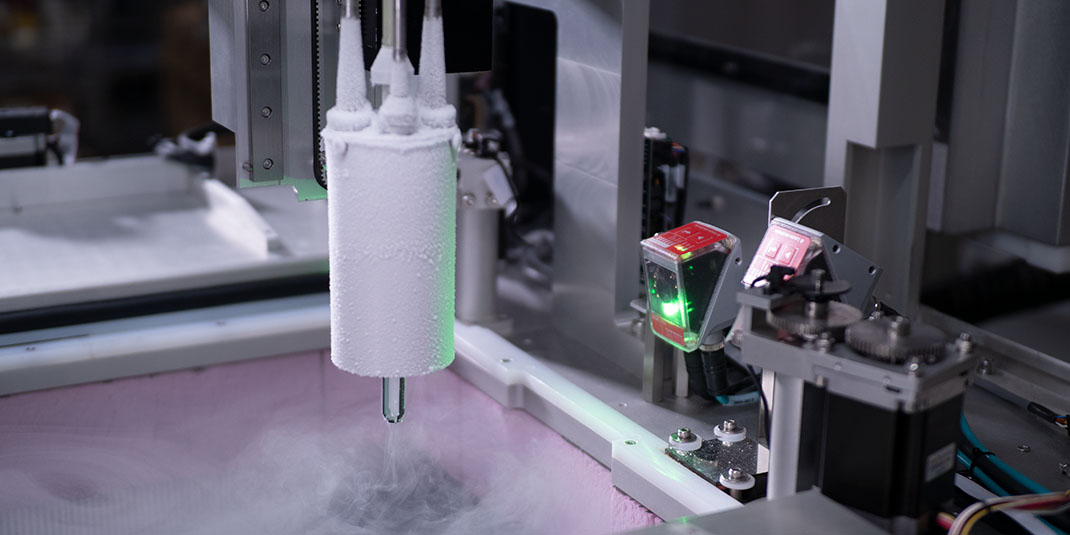Manufacturing and distribution of advanced therapies relies on stable low temperatures. Cellular products and other biological materials are often stored below -135°C, the glass transition temperature of water (Tg), where enzymatic activity is believed to cease. Routine handling in and out of storage can expose materials to temperatures above Tg, leading to degradation and reduced cell viability.
We sat down with Ryan Smith, Director of Automated Storage Sales at Azenta Life Sciences, to explore the challenges of cell and gene therapy (CGT) storage and ways to increase reproducibility and rigor when managing critical materials.
How are CGT organizations addressing cold storage today?
Cold storage is integral to the success of any trial or the production of a cell or gene therapy. However, very few organizations are prioritizing cold chain management because it isn’t seen as important until there is a critical failure. We want them to realize that there are a range of effects from suboptimal cold storage, not just an increased risk of major failures.
Why are the challenges of cold storage often underestimated?
Cold storage entails many subtleties. When a sample goes back into a cold environment, elastic warming occurs—the sample continues to rise in temperature. Re-cooling doesn’t begin until some period of time after a sample is returned to its storage environment. A critical temperature for cell preservation is the glass transition temperature of water, roughly -135°C. Even short excursions above this temperature can significantly impact the potency and functionality of cells post-thaw.

What are the consequences of cold chain management that isn’t adequately optimized?
I’ll give you an example. A cell therapy provider was facing challenges with cell counts. Once they had reviewed other possible causes, they looked at their cold chain management. After working with Azenta Life Sciences to automate their cold storage, they quickly began to see improvements in their downstream quality and consistency.
How can organizations improve their cold chain processes?
Maintaining integrity of cellular products during storage and retrieval is paramount. Automation can add tremendous benefit here. It delivers greater consistency and rigor compared to manual workflows. Azenta’s -190°C cryogenic freezer can locate, lift, and deliver materials automatically to the user while keeping the materials well below Tg throughout the entire process.
Automation is also faster than manual workflows. Customers tell us that they used to spend four days a week retrieving samples to support workflows throughout their organization. Now, after deploying our automated solutions, they’re down to one day a week.
Better tracking is another important component. Our customers don’t necessarily have the bandwidth to implement and monitor quality procedures, inventory documentation, and risk mitigation. Every day, we bring these organizations tools in the shape of automation or expertise in the form of staff or training. When samples and materials are transported to and from multiple sites, it adds a layer of logistical complexity. To address that, we provide networked solutions that can share information globally about the history of samples. Compliance reports can travel with samples as they move between sites, wherever they land in the world.
Many CGT companies are growing rapidly. How can they ensure their cold chain systems keep pace?
Modular, scalable systems provide continuity of cold chain management. We’re here to grow with organizations. Our solutions can scale and deploy immediately. Azenta is providing tools and services to support discovery, pre-clinical studies, clinical trials, all the way through commercial manufacturing implementation. We’re not just limited to on-site automation; our repositories use these automated solutions as well.
With scale comes efficiency, and so we have larger, linkable solutions that manage thousands of samples at a single site. Our platform can link twelve automated systems with an individual picking robot that brings samples together from every array.
Azenta Life Sciences provides a comprehensive range of solutions across every phase of CGT development. Learn how we can support the rigor of your program all the way from target discovery through scale-out.
About the Guest
Ryan Smith

Ryan Smith is the Global Sales Director for Automated Storage Solutions at Azenta Life Sciences. Over the past five years with Azenta Life Sciences, Ryan has held a number of sales leadership roles with the automated storage portfolio. At Azenta, Ryan focuses on delivering customized sample management solutions for organizations across the development spectrum and throughout their global supply chains.
